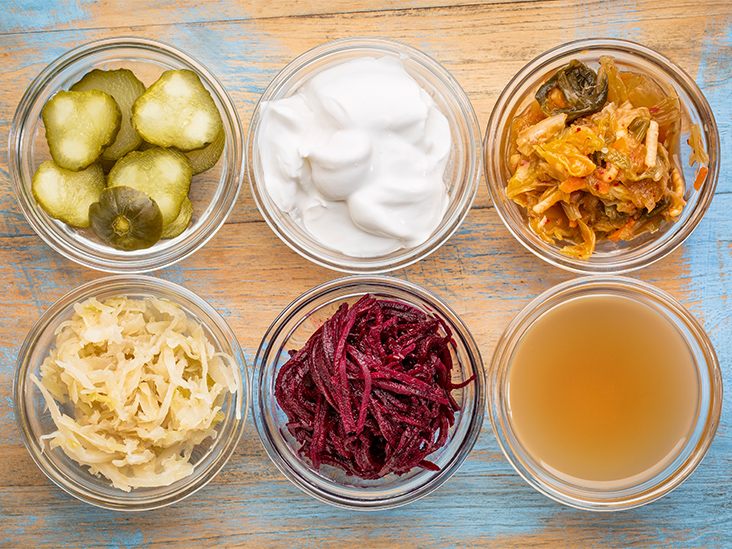
Would you believe that drinking beer could be good for your health? According to one study, strong Belgian brews that are fermented twice have the same probiotic benefit as other gut-friendly foods!
Of course, not all of us want to drink a beer every day, while some of us might have trouble stopping at just one! So it might be better to incorporate some of the following probiotic foods into your diet instead.
- Yogurt
You’ve probably heard that it’s a good idea to eat yogurt after taking antibiotics. That’s because some types of yogurt are rich in probiotic benefits. However, not all yogurt is created equally, so make sure the brand you choose contains live or active cultures.
While you’re reading the label, look at the amount of added sugar too. Even low-fat or fat-free yogurts aren’t necessarily healthy choices. Buy the plain kind and add a whole-fruit jam or your choice of sweetener.
- Kefir
Is yogurt getting boring? Lactose-intolerant? Step up your probiotic game by checking out kefir. Like yogurt, this is a fermented dairy product.
Kefir, however, contains more probiotics. It’s also usually easier to tolerate for folks who have trouble digesting lactose. You can find bottled kefir at the grocery store, or make it yourself for a fun, inexpensive alternative.
- Kimchi
One of the most well-known Korean dishes is also one of the healthiest. Kimchi is a spicy fermented condiment made from cabbage and other vegetables. You can think of it like sauerkraut with a kick!
Jarred kimchi is available at most supermarkets. It’s also easy to make kimchi from scratch. Once you have some on hand, use it to jazz up noodles or rice, incorporate it into delicious kimchi pancakes, or just snack on it.
- Sauerkraut
Of course, you can always start eating more sauerkraut too. Choose the unpasteurized kind for topping your hot dogs or tucking into a Reuben.
Not only is this delicious cabbage dish a source of probiotics, but sauerkraut has loads of fiber, iron, manganese, lutein, and vitamins C, B, and K.
- Miso
Like salty foods? Give miso a try. Miso is a Japanese flavoring that is made by fermenting soybeans.
It has a salty, umami-packed flavor and it also packs a probiotic punch, which is useful if you are trying to fight candida infection. Learn more about this health condition and how to heal it at microbeformulas.com.
- Pickles
Some folks love snacking on sour, salty, seasoned pickles. If you’re one of them, you’re in luck! But it’s important to understand that there are two ways to pickle cucumbers and other vegetables. Using vinegar doesn’t produce a probiotic product.
Look for small-batch pickles or try your hand at home fermentation. All that’s needed is cucumbers, salt, and water, along with about a week’s worth of waiting, and you’ll have pickles with gut-friendly bacteria.
- Kombucha
Kombucha has been having a moment lately, but what is it, exactly? An Asian beverage that’s become popular stateside in recent years, kombucha is a drink made from fermented black or green tea. It also comes in flavored varieties.
There hasn’t been a whole lot of scientific research to support kombucha’s probiotic benefits. But if you enjoy drinking it and feel it helps you, go ahead and raise a glass!
Probiotic Foods Are Good and Good For You
Whether you’re an omnivore or a vegan, enjoy dairy or avoid it, are a meat-and-potatoes person, or love exotic cuisine, you will always find probiotic foods that you will love!
Want more informative content about how to be healthy? Check out the articles in our self-improvement section!